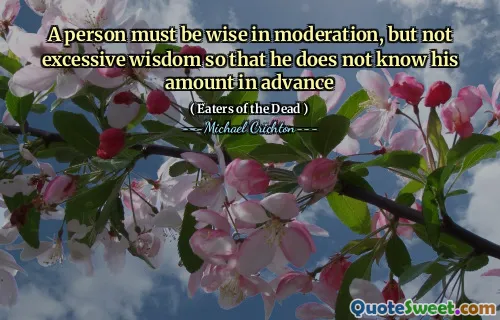
As for you, you're unwise: how may you then speak of these things whereof thou ask you?
This quote brings to light the peril of speaking on matters where one lacks the wisdom or understanding. It serves as a reminder that before engaging in discussions about complex or profound topics, it is crucial to assess one's knowledge and insight. Speaking prematurely or without sufficient comprehension can lead to misunderstanding, misinformation, or even harm, especially when addressing issues that require careful thought and experience. The phrase underscores the importance of humility in speech and the value of silence when knowledge is lacking. It prompts reflection on the nature of wisdom versus ignorance, suggesting that true wisdom involves recognizing one's limits rather than overstepping them by voicing opinions that are not well-founded. Engaging only when equipped with adequate knowledge ensures meaningful dialogue and contributes positively to the collective understanding. Conversely, speaking out of turn or based on superficial knowledge can undermine credibility and hinder progress. In a broader sense, this quote nudges us to practice patience, listen more than we speak, and seek to deepen our understanding before contributing to discussions that matter. It also emphasizes the significance of humility and continuous learning, reminding us that wisdom often involves recognizing when we do not know enough and respecting the complexities inherent in many topics. Ultimately, the quote encourages a mindful approach to communication, fostering humility, respect, and the constant pursuit of knowledge and self-awareness.











